Link building is a vital component of any effective SEO strategy, providing numerous benefits that can enhance your website’s visibility and authority in search engine results.
What Is Link Building and How Does It Work for SEO?
Link building refers to the process of acquiring hyperlinks from other websites to your own. Search engines view these links as votes of confidence, which boost your site's authority and rankings in search results. Learning how to apply these tactics to your website or working with an SEO agency who can support you in your SEO optimization goals can be a big game changer. The more quality links pointing back to your website, the more credible it appears to search engines like Google. This can lead to increased traffic, higher conversion rates, and ultimately, more revenue for your business.
Steps Involved in Link Building

1. Research
Before launching a link building campaign, identify potential sources for links. Tools like SEMrush or Ahrefs can help you discover numerous high-quality websites that may link back to your site. Focus on categorizing these links into groups such as blogs, directories, guest posts, and infographics. Prioritize your list based on traffic potential and domain authority (DA/PA).
2. Manual Outreach
While time-consuming, manual outreach is one of the most effective ways to secure high-quality backlinks. Create engaging, high-quality content that is relevant to your target audience. Use an article template that incorporates relevant keywords while ensuring that the content is unique and valuable.
Then, reach out to webmasters and content managers via email to request that they consider adding your link to their articles. Keep your messages concise and friendly to foster positive relationships.
3. Automated Outreach
Automation tools like OutreachPlus and Authentic Jobs can streamline your outreach efforts, showing you which sites accept guest posts and their respective requirements. Although automated outreach can increase productivity, remember that personalized manual outreach often yields better results for acquiring high-quality links.
How This Process Works
A link is defined as a connection between two pages that helps Google understand their relationship. Three key elements determine this relationship:
- Type of Site:The nature of the linking site influences the value of the link.
- Relevance: The content on both pages must be contextually relevant.
- Anchor Text: The clickable text in a hyperlink helps Google determine the linked page's topic. Natural, relevant anchor text improves SEO effectiveness.

Elements That Impact a Site's Ranking
Several metrics influence how well your website performs in organic search results:
- Domain Authority (DA): Indicates the strength of your website's backlink profile.
- Page Rank: Measures the importance of individual pages.
- Linking Root Domains: The number of unique domains linking to your site enhances credibility.
- Citation Flow: Assesses the strength of links pointing to your site.
These elements help Google discern whether your site has quality content or if it’s potentially using black-hat SEO techniques.
Benefits of Link Building
1. Increased Organic Traffic
High-quality backlinks can significantly boost organic traffic. By targeting relevant sites and industries, you can attract visitors who are genuinely interested in your content.
2. Enhanced Brand Awareness
Quality content linked on reputable sites not only drives traffic but also increases brand recognition. As your content circulates, it builds authority and trust within your industry.
3. Improved Trustworthiness
Trust is a critical ranking factor for Google. When credible sites link to yours, it signals to Google that your content is valuable and trustworthy, improving your overall ranking.
Consequences of Incorrect Link Building
While link building is essential, it must be executed correctly. Missteps can lead to issues like:
- Lack of Backlink Profile:
Without an established link history, Google may consider your site spammy or new, resulting in poor rankings. - Unnatural Backlink Profile: Irrelevant links can trigger penalties. Always aim for links from sites within your industry.
- Excessive Backlinks: Overloading on links can appear spammy and lead to penalties from Google.
- Poor Quality Backlinks: Links from low-quality sites can harm your SEO efforts and credibility.

Link building is a vital component of any effective SEO strategy, providing numerous benefits that can enhance your website’s visibility and authority in search engine results. By acquiring high-quality backlinks, you signal to search engines that your content is credible and valuable, leading to increased organic traffic, improved brand awareness, and greater trustworthiness in your industry.
However, it’s crucial to approach link building strategically, focusing on relevant, high-quality sources to avoid penalties and ensure long-term success. Whether through manual outreach or automated tools, a well-executed link building campaign can significantly boost your online presence.
At Vix Media Group, we specialize in crafting tailored link-building strategies to elevate your brand and drive results. Contact us today to discover how we can help you achieve your SEO goals!






















.png)



.svg)




